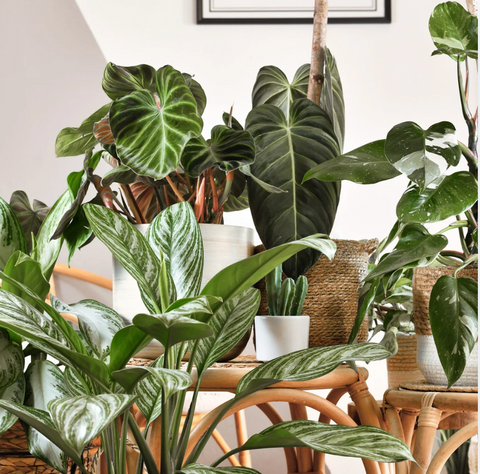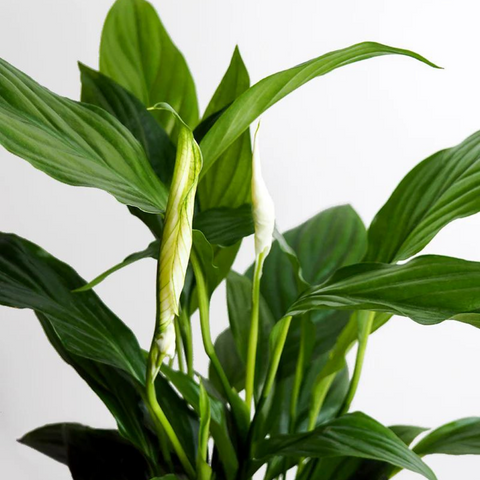As summer approaches, our beloved plants require some extra attention to thrive in the warmer weather. At The Botanical Bar, we are passionate about helping you keep your indoor gardens lush and vibrant all year round. Here are our top tips for summer plant care to ensure your green friends stay happy and healthy through the hottest months of the year.
- Adjust Your Watering Routine
Summer heat means your plants may need more water than usual. However, it's crucial to avoid overwatering, which can lead to root rot. Here are a few watering tips:
- Check Soil Moisture: Before watering, check the soil moisture by sticking your finger about an inch deep into the soil. If it feels dry, it's time to water.
- Water in the Morning: Watering your plants in the morning allows them to absorb moisture before the heat of the day.
- Use Room Temperature Water: Cold water can shock your plants, so use room temperature water for optimal absorption.
- Increase Humidity
Indoor air can become quite dry in the summer, especially with air conditioning running. Increase humidity levels to keep your plants happy:
- Group Plants Together: Plants release moisture through transpiration, so grouping them together can create a more humid microenvironment.
- Use a Humidifier: A humidifier can be a great investment for your plant room, maintaining consistent humidity levels.
- Misting: Lightly misting your plants can also help, but be careful not to overdo it, as excess moisture on leaves can attract pests and diseases.
- Protect from Direct Sunlight
While many plants love bright light, direct sunlight can scorch their leaves, especially during peak afternoon hours:
- Move to Indirect Light: Place your plants in a spot where they receive bright, indirect light. Use sheer curtains to diffuse harsh sunlight.
- Rotate Your Plants: Regularly rotate your plants to ensure even light exposure and growth.
- Use Grow Lights: If natural light is insufficient, consider supplementing with grow lights, ensuring they mimic the natural day/night cycle.
- Feed Your Plants
Summer is the growing season for most houseplants, so it's a great time to feed them:
- Use a Balanced Fertilizer: A balanced, water-soluble fertilizer applied every 4-6 weeks can support healthy growth.
- Follow Instructions: Always follow the manufacturer's instructions to avoid over-fertilizing, which can harm your plants.
- Monitor for Pests
Warm weather can attract pests like spider mites, aphids, and mealybugs:
- Inspect Regularly: Check the undersides of leaves and along stems for signs of pests.
- Clean Leaves: Wipe down leaves with a damp cloth to remove dust and pests.
- Use Natural Remedies: If you find pests, use natural remedies like neem oil or insecticidal soap to treat infestations.
- Repot if Necessary
Summer is an ideal time to repot your plants if they have outgrown their current containers:
- Choose the Right Pot: Select a pot that's slightly larger than the current one and ensure it has drainage holes.
- Use Fresh Soil: Use high-quality potting mix to provide essential nutrients and good drainage.
- Provide Proper Air Circulation
Good air circulation helps prevent mold, mildew, and pest infestations:
- Space Out Plants: Ensure there's enough space between plants for air to circulate.
- Use Fans: If necessary, use fans to keep the air moving, especially in humid environments.
Stay Connected
Follow us on social media and subscribe to our newsletter for more plant care tips, exclusive offers, and updates on upcoming events. Together, let's make this summer a season of growth and greenery!





Comments (0)
There are no comments for this article. Be the first one to leave a message!